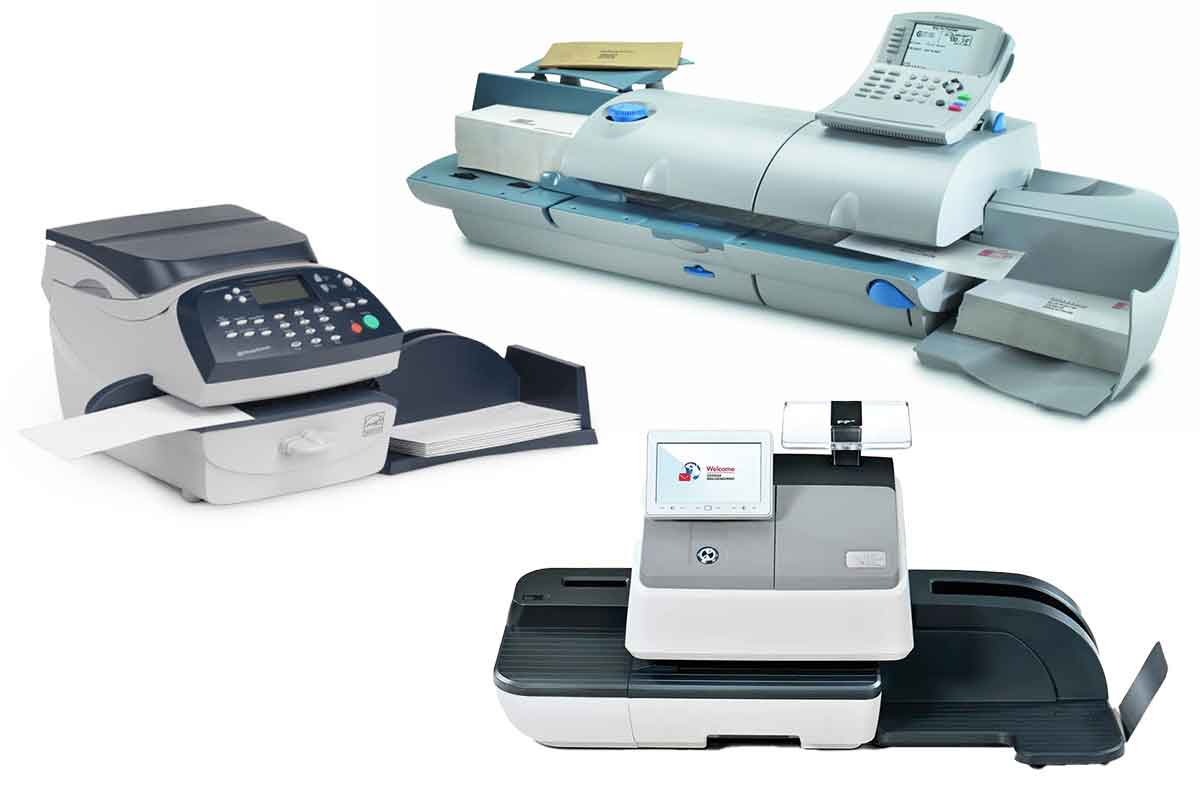When it comes to selecting the right franking machine for your business, FP Mailing and Pitney Bowes are two of the most recognised names in the industry. Both companies offer a wide range of products designed to streamline mailing operations for businesses, large and small. However, choosing between FP Mailing vs Pitney Bowes requires careful consideration of their product offerings, pricing structures, and key differences. In this article, we’ll provide a detailed comparison of these two companies to help UK businesses make an informed decision.
FP Mailing vs Pitney Bowes
| Feature | FP Mailing | Pitney Bowes |
|---|---|---|
| Target business size | Small to medium-sized businesses | Medium to large enterprises |
| Product range | Entry-level to high-end franking machines, easy to scale | Wide range of franking machines with integrated office solutions |
| Ease of use | Focus on simplicity and user-friendly operation | More advanced features, may require additional training |
| Technology and integration | Basic integration, suitable for businesses with simple needs | Extensive integration with software solutions (CRM, accounting) |
| Upfront cost | Lower initial cost, especially for entry-level machines | Higher initial cost, particularly for mid-range and high-end models |
| Ongoing expenses | Lower cost for maintenance and consumables (ink, labels) | Moderate to higher ongoing costs, though durable with less frequent maintenance |
| Pricing structure | More competitive pricing overall, especially for small businesses | Flexible pricing models (leasing options, special offers) |
| Mail volume | Ideal for low to medium volumes, scalable as needed | Built for medium to high-volume mailing |
| Customer support | Good customer support, though smaller technician network | Excellent customer service with extensive UK technician network |
| Maintenance requirements | Low-maintenance machines, designed for easy servicing | Machines are reliable but may require more frequent servicing for complex systems |
| Automation features | Automated feeding and processing available for mid-range models | More advanced automation for high-volume mail processing |
| Scalability | Flexible and easy to upgrade as business needs grow | Offers high scalability, suitable for businesses expanding rapidly |
| Additional features | Basic franking functions with some advanced automation | Digital postage, cloud-based mailing systems, advanced reporting tools |
| International mailing | Supports basic international mailing | Strong international mailing support, including shipping systems |
| Customisation options | Limited customisation options for smaller machines | Extensive customisation available, especially for high-end models |
| Best suited for | Small businesses looking for affordable, easy-to-use franking machines | Businesses needing fully integrated mailing and office solutions |
Product range – Mailing solutions tailored to business needs
Both FP Mailing and Pitney Bowes provide franking machines that cater to a variety of business sizes and mailing needs, from small startups to large enterprises with high-volume mailing requirements. However, their approaches differ slightly in terms of technology and added services.
- FP Mailing focuses on providing flexible, user-friendly franking solutions that can be easily scaled as your business grows. Their range includes entry-level machines for small businesses, mid-range models for medium-sized companies, and high-end machines designed for large enterprises with heavy mail volumes. They emphasise ease of use, with machines often featuring touchscreen interfaces and automated feeding options, ensuring that even smaller businesses can operate them with minimal training.
- Pitney Bowes offers a comprehensive suite of mailing solutions that go beyond just franking machines. Alongside their traditional franking machines, they provide a range of software-driven solutions that integrate with your overall office infrastructure. Pitney Bowes offers machines for low, medium, and high-volume mailings but also focuses heavily on adding efficiency to processes with tools such as digital mailing solutions, invoice automation, and parcel shipping systems. This makes them an attractive option for businesses looking to optimise not just mailing but the broader document management process.
Pricing – Initial costs and ongoing expenses
When evaluating the cost of a franking machine, businesses need to consider both the upfront cost of the machine and the ongoing expenses, such as maintenance, ink, and postal rates. Here’s how FP Mailing vs Pitney Bowes stack up:
- FP Mailing tends to have competitive pricing, especially for smaller machines aimed at SMEs. Their entry-level models are often priced lower than Pitney Bowes’ equivalents, making them attractive for budget-conscious businesses. Maintenance packages, ink, and consumables are also generally more affordable. However, businesses should carefully consider the cost of any necessary upgrades, as scaling up with FP Mailing may involve additional charges for advanced features.
- Pitney Bowes machines may come with a higher upfront cost, particularly for their mid-range and high-volume models. That said, they often offer flexible pricing models, such as leasing options, which can be appealing to businesses looking to spread out the cost over time. While consumables such as ink can be pricier than FP Mailing’s, Pitney Bowes machines are generally known for their reliability and require less frequent servicing. Additionally, Pitney Bowes frequently runs offers that allow businesses to lock in lower postal rates, which can offset some of the higher initial costs over time.
Key differences to consider
Technology and integration
One of the most significant differences between FP Mailing vs Pitney Bowes is their approach to technology. Pitney Bowes tends to integrate their franking machines with a wide range of office automation tools, making them an attractive choice for businesses that want to go beyond traditional franking and integrate their mail processes with their accounting or CRM systems.
- Takes 2 minutes
- Receive quotes to compare
- Easy and no commitment
If your business is already using Pitney Bowes software for other functions, this integration may make their machines more efficient for your operations.
FP Mailing, on the other hand, focuses more on simple, easy-to-use machines that can be scaled as your business grows. Their machines are often easier to set up and use, making them ideal for businesses that need a franking solution without too many bells and whistles. While FP Mailing does offer integration options, they are not as comprehensive as those from Pitney Bowes.
Support and service
Another difference between the two providers is the level of customer support.
Pitney Bowes has a long-standing reputation for excellent customer service, with a large network of support technicians available throughout the UK. They offer various service plans that include regular maintenance visits and emergency call-outs, which can minimise downtime and keep your mailing operations running smoothly.
- Give your requirements
- Receive quotes to compare
- Choose a provider or walk away - your choice!
FP Mailing also provides good customer support but may not have the same extensive network of technicians. That being said, their machines are designed to be low-maintenance, so many businesses find that they don’t need as much support. FP Mailing’s focus on simplicity means that their machines are less likely to require frequent repairs.
Mail volume and usage
The volume of mail your business processes is another critical factor in choosing between FP Mailing vs Pitney Bowes.
FP Mailing’s machines are ideal for low to medium mail volumes and offer great flexibility in upgrading as your business grows. Their machines often feature scalable functionality, making it easy to expand capacity without needing a complete replacement.
Pitney Bowes, on the other hand, excels in high-volume mailing environments. Their machines are built for durability and high-speed processing, which is essential for large enterprises handling significant amounts of mail each day. Businesses with complex mailing requirements, including international shipping, may find Pitney Bowes’ solutions more suitable, thanks to their advanced features and software capabilities.
Additional features
Both companies offer additional features, but they target different types of businesses.
FP Mailing’s machines tend to focus on basic franking functions, with some models offering advanced automation for faster processing. They are best suited to businesses that need a straightforward mailing solution without too much complexity.
Pitney Bowes offers a broader array of features, including digital postage, advanced reporting, and integration with cloud-based mailing systems. These features make Pitney Bowes a better fit for businesses looking to digitise their mailing processes and gain more insights into their mailing operations.
Conclusion – FP Mailing vs Pitney Bowes
When comparing FP Mailing vs Pitney Bowes, both companies offer solid franking machine solutions, but they cater to slightly different business needs. FP Mailing is the go-to option for businesses that need an easy-to-use, cost-effective franking machine with scalability as they grow. Their machines are often more affordable upfront and provide excellent functionality for small to medium-sized enterprises.
Pitney Bowes, however, is the better choice for businesses looking for a fully integrated mailing solution that goes beyond franking machines. Their higher upfront costs are balanced by robust features, excellent support, and the ability to handle complex mailing needs, including international shipping and integration with business software.
Ultimately, the decision between FP Mailing and Pitney Bowes comes down to the size of your business, your mail volume, and whether you need a simple franking machine or a fully integrated office mailing solution. Consider your current and future mailing requirements to choose the best option for your business.
FAQ – FP Mailing vs Pitney Bowes
FP Mailing focuses on affordable, user-friendly franking machines, ideal for small businesses. Pitney Bowes offers more advanced, integrated mailing solutions, including digital systems and software tools, designed for larger enterprises with high-volume mailing needs. Your choice depends on the size and complexity of your business operations.
Pitney Bowes excels in system integration, with tools that connect franking machines to CRM, accounting, and other office software. FP Mailing also offers integration, but Pitney Bowes provides more comprehensive options, making it ideal for businesses seeking streamlined, technology-driven mailing processes.
FP Mailing generally offers lower initial costs for franking machines, especially for entry-level models. Pitney Bowes tends to have higher upfront costs, but they offer flexible pricing options like leasing. However, Pitney Bowes machines come with advanced features that may justify the higher investment for larger businesses.
Both FP Mailing and Pitney Bowes offer a wide range of franking machines. FP Mailing focuses on scalable machines suitable for smaller to mid-sized businesses, while Pitney Bowes has a broader product range that includes high-volume machines and digital mailing solutions for larger businesses.
Pitney Bowes is known for its extensive customer support network across the UK, with a strong team of technicians. FP Mailing also provides good customer service, though their technician network is smaller. Pitney Bowes’ superior service network can be crucial for businesses requiring immediate maintenance.
FP Mailing machines are designed with simplicity in mind, making them easy for small businesses to use without much training. Pitney Bowes offers more advanced machines with added features, which may require more learning but provide greater functionality, especially for larger, complex mailing operations.
FP Mailing offers scalable solutions that grow with your business, ideal for small to medium-sized operations. Pitney Bowes machines are also scalable but offer a wider range of options for businesses with large mailing volumes, making them more suitable for businesses anticipating significant growth.
Pitney Bowes provides more advanced automation, particularly for high-volume mailing environments. Their machines often include features like automatic feeding, digital postage, and reporting tools. FP Mailing also offers automation, but their machines tend to focus on basic mailing processes, catering to smaller businesses.
Yes, both FP Mailing and Pitney Bowes support international mailing. Pitney Bowes, however, excels with more comprehensive solutions, including integrated shipping systems and tracking for international mail. FP Mailing’s machines are suitable for businesses with standard international mailing needs, offering more basic functionality.
Pitney Bowes offers more flexible pricing models, including leasing options that spread the cost over time. FP Mailing typically provides lower-cost machines but with fewer financing options. Businesses needing flexible payment terms may find Pitney Bowes’ leasing arrangements more accommodating, especially for high-end models.

